Once were philosophers
While digging up the India talk, I came across my notes for a study circle I was part of. It was post-9/11 era, and some of my brothers and sisters from the university days decided to hold sessions to learn more about our shared history. My session was on the pre-enlightenment western philosophy. Over the fold are my notes based on Russell.
BOOK ONE
2. The Milesian School
The two main philosophers were Thales and Anaximander. The former believed that all things were composed of water and that the whole world rested water. He was also attributed with bringing certain geometrical rules of thumb into Greek life from the Egyptians. He had a scientific method of inquiry, which he applied to astronomical and maritime problems.
Anaximander on the other hand believed that matter was composed of an unspecified primal substance, which was eternal and infinite. Related to this was his conception of justice which was underpinned by the unending “balance” of the three elements of nature: fire, water and earth, with a natural order dictating a perpetual equilibrium.
3. Pythagoras
Thought is superior to sense, intuition is superior to observation. Pure mathematics, which is the ideal and the actual world falls short of it. Believed in the harmony of numbers; this was disproved by the Euclideans. Aside: geometry relies on self evident axioms leading to theorems via deduction, modern science.
4. Heraclitus
Believed that strife and war were good. Everything contains two elements fire (good = passion) and water (bad = wet blanket).
5. Parmenides
Parmenides saw the physical world as consisting of one, indivisible “substance”, the One. Also, he is attributed with being the first person to employ logic in (attempting) to establish metaphysical propositions and conclusions. (Russell digresses here to rebut Parmenides’ contention that nothing can ever change).
6. Empedocles
Changes in the world are governed by chance and necessity, not purpose.
8. Anaxagoras
For Anaxagoras, matter was infinitely divisible with everything consisting of various proportions of the elements, with no element ever completely absent. Living things had the added element of nous. Nous was the only indivisible element, and all organisms had the identical level of nous, so that animals were only distinguishable from one another based on their outward appearance (eg, although of equal mentality, a human has hands but a dog doesn’t, which explains their differences). He was an effective empiricist, credited with being the first person to establish the reflected nature of moonlight and the underlying similarity of the sun and the stars.
9. Atomists
Determinists: nothing happens by chance. But also rejects purpose. Atoms move according to physical laws. c/f Newtonian science.
Aside: ‘why does x happen?’ can be thought of in two distinct ways—teleological explanation is ‘what purpose does x serve?’ and mechanical explanation is ‘what previous event w caused x?’; modern science deals with mechanical explanation.
10. Protagoras
A lawyer of the day. Believed that no one can be right or wrong but that some opinions are more practically valuable than others. An example is the normal sighted man’s opinion on the colours of things is not truer than a colour blind man but it can be better (more useful).
11. Socrates
Socrates was concerned with knowledge and ethics, with the ceaseless search for knowledge being his definition of “good” life. He held that “there is no evil only ignorance” and believed in acquiring knowledge by dialectical means rather than via observation and testing (ie he wasn’t scientific). His imperviousness to physical discomforts and emotions illustrated his ethical commitment to a kind of asceticism (mind over body; he forsook sex for example) which foreshadowed elements of stoicism.
13. The Sources of Plato’s Opinions
Plato dominated western thinking until about 13C, then Aristotle dominated until 17C.
Plato blamed democracy for the fall of Athens and death of Socrates whom he idolised.
He believed that you cannot trust the senses. Not only are they valueless but they distort the true nature of things. Only internal intellect is true. This includes logic and mathematics.
He is a teleologist, that is, he looks for the purpose of things (the why) and works backwards rather than the mechanist who looks at how things work (the how).
Goodness is timely thus, once the goal is set for government the best government will copy the heavenly model and then remain unchanged in static perfection. He does not therefore build in dynamic adaptive capacity into his models of civilisation. There is simply the “best” not best given a certain environment.
The statesmen who rule will have both talent and education. Men can be made better through educating them in these two things. Virtue is tied to intellection and intellection to education. Education, in turn requires contemplation and leisure as does intellectual therefore leisure is good for the thinking man.
This stems from a belief that you must know what good is in order to do good. It goes further stating that everyone will do good once they know what it is.
BR raises some practical issues in how the state would determine who the philosophers who rule will be and what education they will mandate in the system. It is these kind of flaws that lead to Aristotle’s final conclusion that democracy is the best system.
14. Plato’s Utopia
Plato’s ideal State is outlined here. His ideas are coloured by his overall notion that only through imagining the ideal state can “justice” be properly understood. Plato’s idea state is basically a totalitarian, fascist, Brave New Worldish concoction. He envisages a fairly rigid caste system (commoners, soldiers and guardians). The education system should be designed to cultivate “gentlemen”.
So justice for Plato consists essentially of citizens knowing their rightful place in society, and not overstepping this position. It’s interesting to note how much Plato’s concept of justice, and therefore his concept of an ideal society, differs from current orthodoxy.
15. Plato’s theory of ideas
Opinion is of the world presented to the senses, whereas knowledge is of a super-sensible world. opinion is concerned with particular beautiful things, knowledge is about beauty itself.
Reality is completely and perfectly good, therefor to perceive reality is to perceive the good.
Russel’s arguments:
Plato doesn’t make the distinction between beauty and beautiful.
Appearance must have some basis in reality.
Opinion can become knowledge – empiricism.
16. Socrates
Believes in the importance of the law. Won’t break the law even in death. Refuses to kill himself as God has a role for us to play and we do not have the right to end that role. It would be like a Cow suiciding before its master is ready for it to be slaughtered. Humans have a soul (heavenly part) and a body (earthly part). The philosopher concentrates on the soul which is associated with higher thought. He thus forgets about the pleasures of the flesh, not because they are evil but because he has more important things to think about. Its from Socrates that Plato got his idea of intellection trumping sensation. Only a lover of knowledge goes to heaven.
17. Plato’s Cosmogony
Plato’s basic principle in this area is simple. Namely, what is unchangeable is understood by reason; what is changing is understood by opinion. God brought order out of chaos.
There are two kinds of causes: intelligent causes and those that are simply compelled by other causes. The former are endowed with mind, the latter are mindless and produce chance effects.
18. Knowledge and perception in Plato
There are 3 theses that Plato discusses:
1. knowledge is perception
Plato is against this thesis. Knowledge is above the senses. Russel concedes that this may be true of pure mathematics, but as regards to all other knowledge Plato is fallacious.
2. Man is the measure of all things
Again, Plato is against this. Russel agrees with Plato. There must be some universal standards of right and wrong. Moral relativism.
3. Everything is flux.
Plato ridicules this. Russel says may be things are constant in mathematics, but not in reality.
19. Aristotles Metaphysics
The rational and irrational part of man. The irrational is the animal part and the rational is the reasoning thinking part. The thinking part is the same for all men (i.e. mathematical answers are the same for everyone who understands maths). The highest goal is to move to the purely rational though this means losing individuality since truth is absolute and common to everyone.
20. Aristotle’s Ethics
Like Plato, Aristotle divides the sole up into two parts, the rational and the irrational. Reason is purely contemplative and requires the addition of “appetite” to result in practical activity. Virtue is divided into intellectual and moral virtues, the former resulting from teaching and the latter from “habit”. The State should therefore attempt to cultivate habits through law to proliferate moral virtue. He does not advocate radical redesign of the State as Plato does.
The doctrine of the golden mean is that virtue always consists of the balance between excess and absence. For example, courage is in between cowardice and rashness. In relation to justice, Aristotle does not adhere to any modern idea of equality. For him, justice is about having the right proportion; different people (fathers, slaves etc) should be afforded different levels of deference, freedom etc.
The ideal man is the magnanimous man (see text for description). Basically the magnanimous man lives out this doctrine of the golden mean and seems similar to Nietzsche’s Overman. This underlines Aristotle’s advocacy of something that is quintessentially elitist and arguably aristocratic. The magnanimous man is the ethical man.
Supreme happiness only comes with pure exercise of the reason, or contemplation, which draws man closer to the divine. The philosopher is the manifestation of contemplation and is therefore the happiness kind of man.
21. Aristotle’s politics
- Arguments against Plato’s republic.
- Communal ‘family’ doesn’t work!
- Communism doesn’t work!
BR not satisified!
- State is the body, individual is like an organ. State is the highest form of community, and can do the most good.
- The purpose of the state is to produce cultured gentlemen. Suggest OR explores this further.
- A government is good when it aims for the good of the community. It is bad when it only provides for itself.
c/f mainstream social democratic parties in the west
- There are 3 kinds of govts, each potentially good or bad.
- Monarchy/tyranny
Monarch seeks honour, tyrant seeks riches. Monarch is like the benevolent dictator. Tyrant is a demagogue. The tyrant stays in power through Machiavellian means. Monarch leads a good state, tyrant the bad.
- Aristocracy/oligarchy
Aristocracy is the rule of wise/virtuous men and is good. Oligarchy is the rule of rich and is bad.
c/f Lenin said party is the vanguard of the people!
- Polity/democracy
Polity is constitutional government as we have it. Democracy is what we’d call ‘direct democracy’ (think of California).
Monarchy > aristocracy > polity > democracy > oligarchy > tyranny. Sort of golden mean / practical consideration è democracy is the best. c/f Churchill: democracy is crap except everything else is worse.
Revolutions happen because of quarrels over the distribution of resources. How to prevent revolution: propaganda, respect for law and justice in law.
What is justice? Equality according to proportion (of virtue) and for every man to enjoy his own.
BR argues that equality according to proportion of virtue doesn’t make sense because can’t measure virtue. c/f ‘all men are created equal and endowed with inalienable rights’.
- It is just to wage war against inferior people. How do we know who are inferior? The defeated ones. c/f Mao: Political power lies at the barrel of a gun!
- Against trade and finance. This was later taken up by the Catholic Church.
23. Aristotle’s Physics
Aristotle adopts a very much teleological view of the physical world, which was informed by an animal-centric understanding of motion. Heavenly bodies move more predictably than animals because of their superior perfection. The nature of a thing is its purpose. Some things exist by nature (animals and elements) the rest by other causes.
24. Greek Mathematics and astronomy
- Romans produced very little advances in science despite having good government by most measures (at least by Aristotle’s measure). Question: what drives intellectual advances?
25. Hellenic period
Chaos brings both moral decay and intellectual enfeeblement. While compatible with the highest virtue of a few are deadly in terms of every day virtue for most respectable citizens. There is no use in thrift if tomorrow your savings will be seized by force, no advantage in honesty if all around you are swindlers, nothing to gain in loyalty to a cause when all causes face certain failure etc. A man whose virtue rises above the mundane becomes a risk seeking adventurer if he has courage or shrinks into obscurity if he does not.
26. Cynics and Sceptics
The development of philosophy in the Hellenistic period must understood in its socio-political context. Political autonomy (of individuals and Greek cities) had been undermined by changes wrought by Alexander and subsequent despots. As such, movements like cynicism and scepticism can be seen as a retreat into subjectivism, with recognition that the world (of politics) could not be influenced by any individual.
Cynicism was something of a reaction to elitist Hellenic philosophy, with its founder renouncing an interest in the Athenian “nonsense” to which he was initially exposed. Cynicism advocated a “back to basics” lifestyle, essentially communitarian in nature. Critically, we see a movement from the consequentialist nature of previous thinking (particularly in relation to the state) to a philosophy based on Kantian-like notions of the primacy and intrinsic importance of a person’s mens rea, ie, a move towards deontological ethics.
Sceptics denied the whole basis of rationality by arguing that no course of action could ever be justified above an alternate course. As such, one should just conform to custom, go to church, act normally but recognise that there was no rational basis for doing so.
27. Epicureans
Weary creature of his age (like other contemporaries), he argued that pleasure is good, but then made a distinction between static and dynamic pleasure. The end result is: wise man will choose a certain absence of pain over a risky pursuit of pleasure. c/f certainty equivalence or concavity of utility function.
But the curvature of Epicurus’ utility function is extremely concave: so risk averse as he seeks solitude from everything.
28. Stoicism
Critical chapter of interest proposing that human suffering is, of itself, a virtue. Obviously, suffering as a good in itself is not a satisfactory ethic, however, suffering for a worthy cause must inevitably form a critical component of any ethical framework worth its salt.
Zeno
• P242 Deified Socrates:
– Calm in death,
– Indifferent and eloquent at his trial,
– Did not flee to save himself but stayed with his principles.
– Spartan in his consumption and indifferent to pain and the elements
• Tenets:
– Injustice hurts the evil doer more than those unjustly treated.
– P243 – Virtue is the practice on earth not tied to metaphysical elements.
: All else is meaningless – health, happiness, possessions etc
: Aim to free yourself from mundane desires
– Trust your senses – materialism is real but evil.
: Senses at least give you a probability of actual realities.
– No chance only natural laws that govern all events.
– The world move in cycles not forward or backward.
: There is no purpose to the endurance except as a virtue in itself since there is no way to move forward or backwards.
– All things have a purpose with man at the centre
: Eg. Cow for eating, wolf to test man’s fighting skill etc
– The divine runs through all things
Chrysippes/Epictetus
• Good can only exist where there is evil.
• Marcus Aurelius
– Roman Emperor (argued to be the most virtuous of all the Emperors)
– Practitioner – wrote the Meditations – the burdens of power and its responsibilities
– P251 – All men are actors in God’s play, they have a duty to play that part to their fullest potential, whatever part it is that they may be given.
– P252 – We may depart this life suddenly therefore we must regulate every act and thought accordingly.
: Live in harmony with the universe, obey God. There is a natural order, do not fight it.
: Love mankind. All sin is due to ignorance and lack of will power.
BR contradicts the stoic virtue on P254 Para 2.
• Virtue makes others happy but Stoics say that happiness is not important so why bother to embrace stoicism. Just let everyone suffer so they have the opportunity to be stoics.
• Refer Pg 256 for a discussion of Natural Rights:
– Natural law was derived from the first principles of the kind held to underlie all general knowledge
– By nature, all human beings are equal.
– Marcus Aurelius’ ideal government is:
: A polity in which there is the same law for all, a polity administered with regard to equal rights and equal freedom of speech, and kingly government which respects most of all the freedom of the governed.
: Christianity took this doctrine and used it to push for a better life for men, women and ultimately animal as well.
29. The Roman Empire in Relation to Culture
In this chapter Russell described the historical interaction of Hellenic culture with Latin culture as disseminated by the Roman Empire. In addition, he briefly discusses the effect of Eastern (“Oriental”) religion on Greek and Roman philosophy and the split in the Roman Empire into the West (based in Rome) and the East (based in Byzantium).
Russell explains how Roman culture parasitically adopted much Greek thought, including its Gods, its geometry and its philosophy, especially later Hellenistic thinking (eg, Marcos Aurelius adopted Stoicism). Romans were effective builders and often ran effective governments and militaries, but Russell is scathing of their “Spartan” culture, devoid of any philosophical innovations and artistic contributions.
30. Plotinus
- Neoplatonist, thoug ignores Plato’s politics or mathematics.
- Beliefs in free will over determinism.
- But rejects outside world, exploration, empiricism. The truth is to be found in examining the soul and nous.
BR: Plotinus and Neoplatonists, along with Stoics kept virtue alive in a very difficult world. But Plotinus and Neoplatonists also discouraged science.
BOOK TWO
1 and Introduction – The Jews
Most Jewish religious beliefs appear to have had a practical application at this time. For example, only beat your slave the optimal amount lest he is no longer a profitable investment. Unlike the Christian faith there is no element of forgiveness for sinners. Sin is a matter of choice and sinners will be led into darkness on judgement day even if they live happy lives on earth. There was also no conflict between virtue and living a happy life on earth. In general the Jews did not believe themselves to be the sinners. These were generally those not of the chosen people.
2. Christianity during the First Four Centuries
Some even go as far as portraying the Old Testament God as wicked god who eventually usurped by the Supreme Deity, Jesus incarnate. John’s gospel is contrasted with the other three, where the Jewish characteristic of simplicity had been retained. In John’s gospel, the theology is patently Platonic, with the Son of Man being used analogously with the Greek logos. Christian orthodoxy begins to take shape, with Christians gradually extricating themselves from worldly activities (eg, politics) instead concentrating purely on otherworldly concerns. In this way, philosophy, as it did during the Greek despotic period, loses its concern for the “here and now” and becomes entirely inward looking. Christians were on the whole unambiguously more moral than non-Christians during this period, so Christianity did have some socially tangible effect.
4. Augustine and the City of God
The city of god is a better place not just a better run place like Plato’s republic. At present the city of god is partially on earth. There are elements of the good of the city and also some of its citizens are present on earth (the elect). On judgement day the city will split from this world and the elect will go to it leaving only the sinners behind. It is impossible to tell who is of the elect in this life. Augustine’s advice:
– A raped virgin has not sinned for sin is of the mind/soul not of the body.
– Don’t worry about being mistreated and do not seek revenge for God will do the avenging on Judgement day.
– Suicide is sin
– A virtuous life is, on average, a happy one.
– Everything blessed is eternal but not all that is eternal is blessed.
– The world is not cyclical, Christ died for us just once and will not die again.
– We may free the soul of sin but never the flesh.
– Lust is shameful and wrong because it involves a lack of control. Virtue is about self control.
Pelagian Heresy:
– The doctrine of original sin states that all men are essentially sinner and guilty of evil.
– The Pelagians felt that a man could rise above this and be virtuous based on his own moral principles and choices (i.e. freewill).
– Augustine disputed this stating that it was only by the grace of God (or lack thereof) that people were virtuous (or sinned).
5: The Fifth and Sixth Centuries
The Roman capital, and empire in general, was overrun by various German tribes during this period. The Church seemed largely oblivious to these happenings, continuing to be preoccupied with theological minutiae. For example, the issue of “unity” (the question of Jesus’ nature, divine or human) was hotly debated. One of the most impressive characters during this period was Boethius. Looking at his writings, it was if Boethius had been transplanted from Plato’s day into this period. He also seemed to have considerable access to technological insights, appeared to subscribe to pantheism, but ultimately died a Christian martyr. Through all the period it’s interesting to note the strength and importance of the Christian churches of the East. Church identities from Egypt and Syria in particular seemed to be quite influential. What might have been?
8: John the Scot
John the Scot was a Neoplatonist and was many ways ahead of his time. He was “enlightened” in the sense he put reason above faith and was not afraid of deviating from Catholic orthodoxy as regards his theological opinions. One of his theological positions was to argue in support of libertarianism, ie, as opposed to predestination. His support of free will was matched by his equally controversial belief that reason was just as much a repository of truth as religious revelation. He also contended that events depicted in Genesis were allegorical.
13. St Thomas Aquinus
Aquinus begins with the assumption that Catholic Church Doctrine (including the existence of God) are true and then searches for justifications for this proposition. He is considered to be the father or Catholic theological philosophy.
Wisdom comes in many forms. Practical wisdom enables the building of a sturdy house. The highest form of wisdom is the understanding of the ends of the universe. That is the purpose of all things not just the method of achieving ends.
Divine law calls upon us to love God and to a lesser extend our neighbour.
Sex is natural only with our husband (or wife) and incest is forbidden.
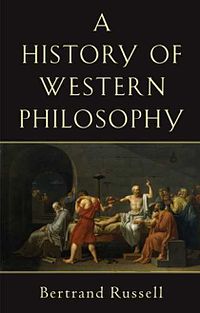
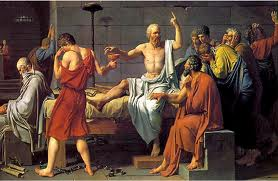
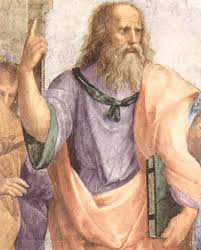
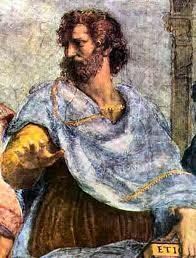
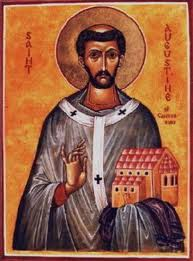
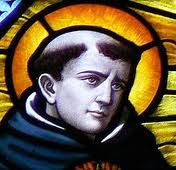
Comments Off on Once were philosophers